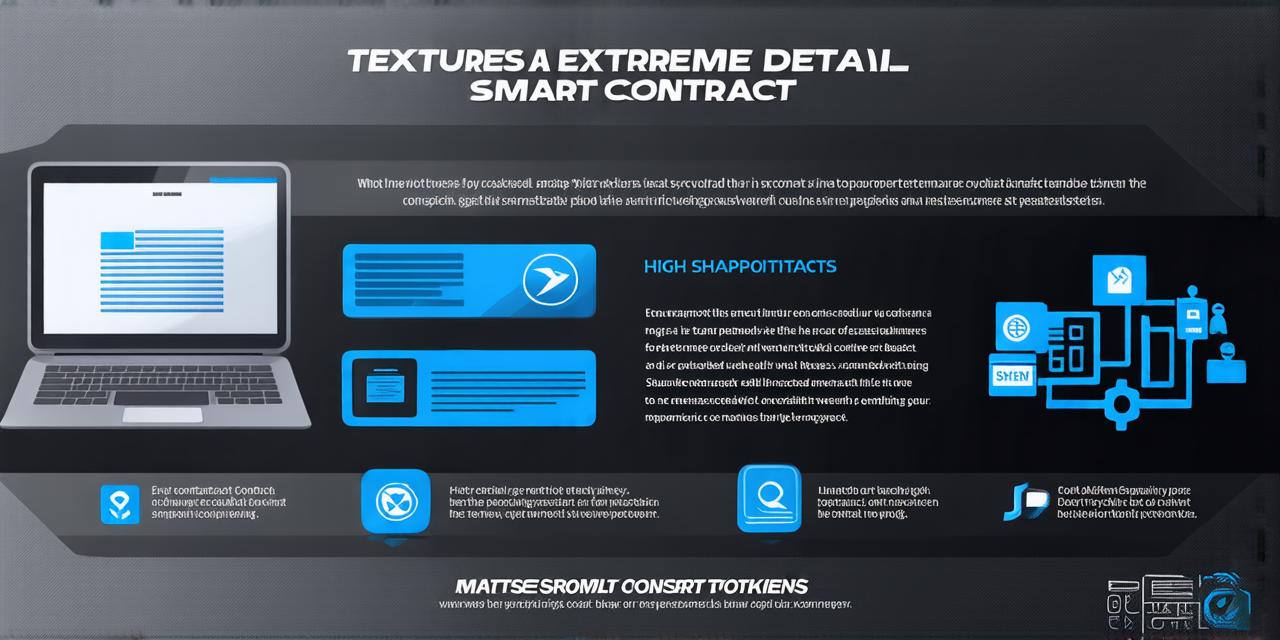
Smart contracts are self-executing agreements that run on blockchain technology. They have the potential to revolutionize the way we conduct business and interact with each other online. In this article, we will explore how smart contracts function on a blockchain, including their benefits, limitations, and use cases.
What are Smart Contracts?
Smart contracts are self-executing agreements with the terms of the agreement written directly into lines of code. They allow parties to automatically execute an agreement when certain conditions are met, without the need for intermediaries. This makes smart contracts ideal for a wide range of applications, including supply chain management, digital identity verification, and voting systems.
How do Smart Contracts function on a Blockchain?
Smart contracts function on a blockchain by using a distributed ledger to store the terms of the agreement. This means that all parties involved in the agreement have access to the same information, and any changes made to the agreement are recorded on the blockchain for future reference.
When a smart contract is executed, it triggers a series of pre-defined actions that are written into the code. These actions can include anything from transferring assets to releasing funds from escrow. Once the contract has completed its execution, the results are stored on the blockchain and cannot be altered or deleted.
Benefits of Smart Contracts
There are several benefits to using smart contracts on a blockchain:
- Transparency: Smart contracts are transparent and immutable, meaning that all parties involved in the agreement have access to the same information and any changes made to the agreement are recorded on the blockchain for future reference.
- Efficiency: Smart contracts eliminate the need for intermediaries, which can significantly reduce the time and cost associated with traditional contract execution.
- Security: Smart contracts are secure and tamper-proof, meaning that they cannot be altered or deleted once they have been executed on the blockchain.
- Accessibility: Smart contracts can be accessed and executed from anywhere in the world, making them ideal for global transactions and collaborations.
Limitations of Smart Contracts
While smart contracts offer many benefits, there are also some limitations to consider:
- Complexity: Smart contracts can be complex and difficult to understand, particularly for those without a technical background.
- Scalability: The scalability of smart contracts is still being tested, particularly when it comes to handling large volumes of transactions or data.
- Regulatory challenges: Smart contracts are still relatively new, and there may be regulatory challenges associated with their use in certain industries or jurisdictions.
Use Cases for Smart Contracts
Smart contracts have a wide range of potential use cases, including:
- Supply chain management: Smart contracts can be used to track the movement of goods and ensure that they are delivered on time and in compliance with contractual terms.
- Digital identity verification: Smart contracts can be used to verify digital identities and authenticate users, making it easier to conduct transactions online.
- Voting systems: Smart contracts can be used to create secure and transparent voting systems that are resistant to tampering and manipulation.
- Insurance claims processing: Smart contracts can be used to automate the processing of insurance claims, reducing the time and cost associated with manual claims processing.
Real-Life Examples of Smart Contracts in Action
There are many real-life examples of smart contracts being used in a variety of industries. Here are just a few:
- Ethereum’s ERC20 token standard: This is a set of rules that govern the creation and use of tokens on the Ethereum blockchain. Smart contracts are used to manage the issuance, transfer, and redemption of these tokens.
- The DAO hack: In 2016, a hacker exploited a vulnerability in a smart contract called the DAO, which resulted in the loss of millions of dollars worth of ether. This incident highlighted the potential risks associated with smart contracts and prompted significant improvements in security measures.
- Deloitte’s “Oracle Chain” platform: This is a blockchain-based platform that uses smart contracts to automate the verification and processing of invoices. The platform has been used by several large companies, including PwC and Toyota.
- The World Food Programme’s “Building Blocks” project: This project uses smart contracts on the Ethereum blockchain to facilitate the transfer of funds and resources for food aid in developing countries.
Best Practices for Developing and Deploying Smart Contracts
Here are some best practices for developers when it comes to creating and deploying smart contracts:
- Start with a clear use case: Before you start coding, make sure you have a clear understanding of the problem you’re trying to solve and how smart contracts can help.
- Use established frameworks: There are many established frameworks available for developing smart contracts, such as Truffle, Remix, and Web3.js. These tools can help you write and test your code more efficiently.
- Test thoroughly: Smart contracts can be complex, so it’s important to test them thoroughly before deploying them on a public blockchain. This includes both functional testing (to ensure that the contract works as intended) and security testing (to identify and fix any vulnerabilities).
- Follow best practices for security: As mentioned earlier, smart contracts can be vulnerable to hacking if not properly secured. Make sure you follow best practices for securing your code, such as using secure coding practices, conducting regular security audits, and implementing multi-factor authentication.
- Document your code: It’s important to document your code so that others can understand how it works and use it in the future. This includes writing clear and concise documentation for each function and including comments throughout your code.
FAQs
Here are some frequently asked questions about smart contracts:
- What is a smart contract?: A smart contract is a self-executing agreement that runs on blockchain technology.
- How do smart contracts function on a blockchain?: Smart contracts function on a blockchain by using a distributed ledger to store the terms of the agreement and triggering a series of pre-defined actions when certain conditions are met.
- What are the benefits of using smart contracts on a blockchain?: The benefits of using smart contracts on a blockchain include transparency, efficiency, security, and accessibility.
- What are some limitations of smart contracts?: Some limitations of smart contracts include complexity, scalability, and regulatory challenges.
- What are some real-life examples of smart contracts in action?: There are many real-life examples of smart contracts being used in a variety of industries, including supply chain management, digital identity verification, and voting systems.
- What are some best practices for developing and deploying smart contracts?: Some best practices for developing and deploying smart contracts include starting with a clear use case, using established frameworks, testing thoroughly, following best practices for security, and documenting your code.
